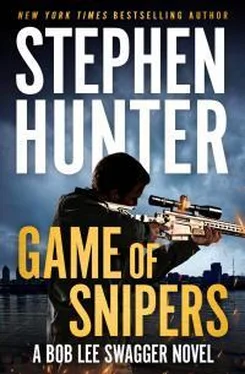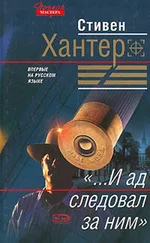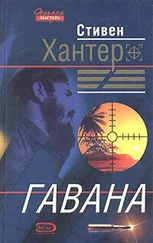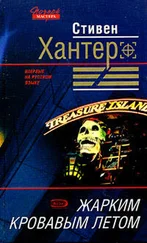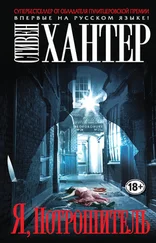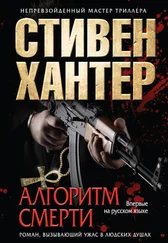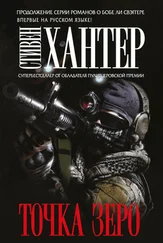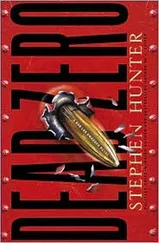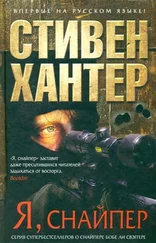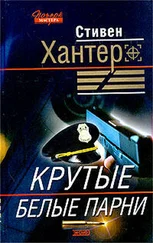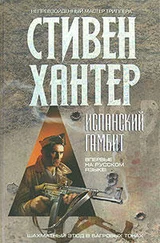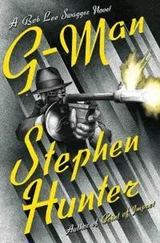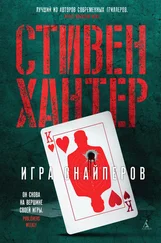Each one reacted differently when hit. You could never tell what was going to happen. Some went instantly still, some fought against the penetration of the bullet — that is, the penetration of death itself. Some manifested fury, some resignation, some even relief, as they went down into eternal sleep.
In this dream, the world was rich with targets, even if in the real world it was seldom so. Marines crouched everywhere, rigid with fear, trying to find cover, twisting their bodies into cracks and fissures in the rubble, trying to insert themselves into doorways or vehicles, anything to get away from the anger of the sniper. But the world was a kill box. His finger spoke for God. It nursed a bolt of heavy ball from the Dragunov without upset to the reticle image in which the infidel was pinned atop the chevron. He had lost track of how many times he’d sent infidels on their voyage to wherever Allah sent them.
But, every time, the dream turned. Each time, he encountered his own fate. As he sought targets, he came at last to settle on one sunk in shadow, not quite clear. He paused a fatal second, waiting for smoke to clear, and as the wind took it and spread it thin, he saw exactly what he knew he would see in life someday: a man, such as himself, hunched calmly behind the stock of a scoped rifle, its muzzle supported and, hence, stilled by the double vectors of a bipod. At that moment, the flash, a smear of disorganized radiance, lasting but a fraction of a second as the cartridge’s unburned powder consumed itself. He knew he was doomed.
O Allah, hear me. I have served you with all my being and spirit and request humbly absolution for my sins and a welcome to Paradise.
He knew that’s how he would die. Sooner or later, having been hunted his whole life, first by Israelis and then by Iranians and then by Kurds and then by Russians and then by Israelis again and finally by Americans, he would become the trophy to a man as skilled as himself.
He jerked awake — as always — in sweat, fighting panic. The desert night was calm. He rolled from the bed and went to the window to see the broad, empty plain outside. Far off, a light burned, a police station on the other side of the valley. Downstairs, his guards were quiet, though one of them was purportedly on duty. No point in checking, as nothing would happen today.
But his mind wouldn’t settle down. Perhaps what lay before him had him unsettled — it still happened, even after so many years — and his biology was responding. No prayer could still it. He thought of a pipe of hashish, but that left him logy and imprecise in the morning.
Instead, he focused on his moment of glory. It was a gift from God. It was Allah sending him recompense for all that had been taken from him, for the humiliations and the disgrace and the echoes of a pain that never went away.
He thought of the bus.
Tel Aviv
Swagger found the address — less than a mile from the beach, and less than a mile from his hotel — which was a certain café with tables outdoors in the sunlight. He sat at one, and the waiter came by, and Swagger ordered an iced tea, though he didn’t like iced tea. He had been told to order iced tea. He sat for a while, figuring that one team was observing him by means of binoculars while another examined passersby for threats. No bombs exploded, no machine guns sounded, no one noticed, no one moved.
Finally, from inside the restaurant, a man came out and joined him.
“Sergeant Swagger? I’m Gershon Gold.”
“Sir,” said Swagger. “Please sit down.”
The man slid in. Like Swagger, he wore sunglasses. Like Swagger, a short-sleeved shirt, open at the neck, pale and gossamer, loosely woven for comfort. Swagger wore a Razorbacks ball cap, while Gold wore a tropical fedora with a black band. He had on dark pants, shined loafers, and a Breitling watch with a green band. No color showed on his face, an ovoid specimen of milky whiteness built around a prim and unexpressive mouth. He looked like the rare man whose tombstone might read “I wish I spent more time at the office.”
“Thanks for the chat,” Swagger said. “I hope you find what I have for you useful.”
“I’ve seen the FBI file on you,” said Gold. “You have contributed much. Myself, I’m really just a clerk. For me, courage is not a job requirement. But I consider myself, nonetheless, of some utility.”
“I was told by my daughter that you’re the George Smiley of your organization. I guess that means ‘a famous spy.’”
“Something like that. I lack a beautiful wife, however, and an encyclopedic memory. And unlike Smiley, I’m not a cynic, I’m still a humble pilgrim. By the way, I found your daughter extremely bright. I’m sure you’re very proud.”
“I am.”
Gold nodded. “Please proceed.”
“Is this place secure? Can I say a certain name that might be classified?”
“You are actually surrounded by young members of our counterterror staff. This is their favorite kind of assignment.”
Swagger took a single breath before beginning. “Let me begin by asking, do you have familiarity with the name Juba? As in Juba the Sniper.”
Gold sat back coolly, betraying no surprise. Yet the microlanguage of his facial architecture — so subtle, few would have noticed — communicated a response. A stimulation. Then it was gone.
“A very interesting gentleman.”
“Ain’t he just?” said Swagger.
“I must warn you, much of what has been offered to us in re Juba over the years has turned out sourly. He is surrounded by misinformation. The man himself is quite clever in his security arrangements, as are his masters. This includes false trails, inaccurate leaks, bogus sightings, and the like. We have gone up many alleys to find them blind. He knows many things which we would like him to share with us — and I’m sure we could persuade him — but he seems more a myth than a man. A phantasm.”
“You’re telling me I could have been suckered, and this is just mischief, meant to eat up energy and leave everyone frustrated in the end.”
“It might even be a distraction. You can never be sure. A whisper of Juba’s presence orients us in a certain direction, and he operates in the opening left by our commitment to that lure. It has happened before.”
“In other words, in this game I am an amateur and may be full of shit.”
“With all due respect, at this stage anything is possible.”
“Well, let me tell you the story and all about the remarkable woman who is its hero.”
“Please.”
Swagger narrated as succinctly as possible the odyssey of Janet McDowell, the one-woman CIA who’d gone from suburban matron to deep-cover penetration agent. The Mossad professional listened intently, occasionally sipping lemon water, but did not interrupt.
Finally, he said, “Is any of this backed up on paper? Do you have copies of the various documents in play, photographs of the individuals mentioned — proof, say, of her mistreatment on her journeys? Does this hold up to elemental scrutiny?”
“All of it, here in this briefcase. Moreover, I hired a private detective. Please, if you should meet her, don’t tell her. I had the same questions. I also ran her paperwork by a friend of mine who’s a retired FBI agent and extremely practiced in this business. In both cases, she passed the test brilliantly. Her zygoma was indeed fractured into four pieces in 2010, and she spent seven months in the hospital. Even then, the bones didn’t quite heal properly. Her finances indicate funds coming in from relatives, an ex-husband, the sale of property. She doesn’t have much left or much future to look forward to. She’s two million in debt, with no end upcoming.”
Читать дальше
